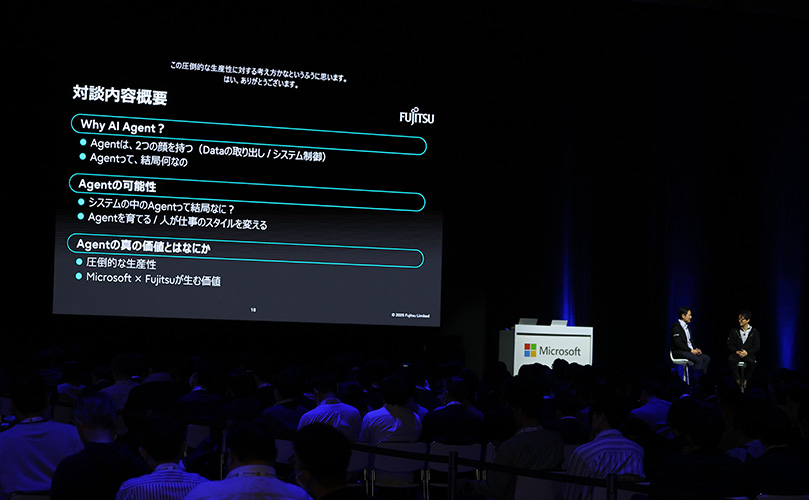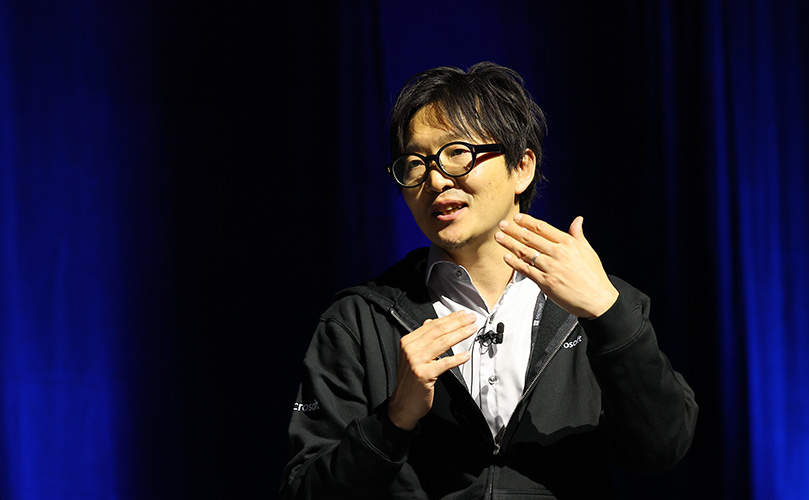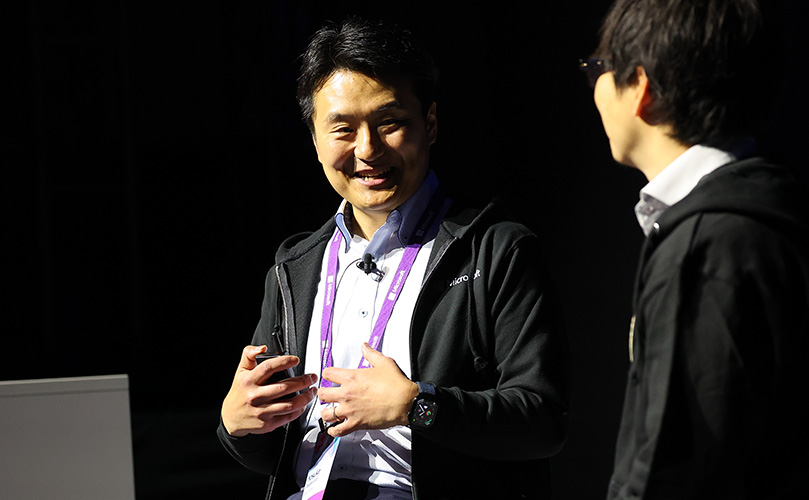Fujitsu and Microsoft Partner to Develop AI Agent for JAL Cabin Crew
Fujitsu and Microsoft showcased a JAL cabin crew AI app at the Microsoft AI Tour, highlighting the need for AI agent training and their collaborative solutions.
AI-Powered Incident Reporting App
At the Microsoft AI Tour in Tokyo on March 27, 2025, Microsoft CEO Satya Nadella introduced the "JAL-AI Report", a generative AI application developed by Fujitsu for Japan Airlines (JAL) cabin crew. The app assists in creating incident reports for ground staff by allowing users to input keywords and select checkboxes. Designed for offline use, it operates on-device, at the edge, and on-premises.

Technology Behind the App
Fujitsu partnered with Headwaters Co., Ltd. to develop the app using Microsoft's Phi, a small language model (SLM) optimized for offline performance. Unlike traditional cloud-dependent LLMs, Phi was fine-tuned with JAL's historical reports, ensuring natural language output and accurate business terminology. Field trials confirmed the app reduces report creation time and minimizes corrections.
AI Agents: The Future of Work
In a breakout session, Fujitsu's Yousuke Takabayashi and Microsoft Japan's Yoshihiko Tomoyama discussed AI agents as autonomous task performers. Tomoyama described them as entities that execute tasks based on natural language instructions. Takabayashi added that Fujitsu envisions "business-specific AI agents" integrated into existing systems, controlled via a single UI for complex task automation.

Human-AI Collaboration
Takabayashi likened AI agents to "new employees" requiring training and prompt engineering. Both speakers agreed that AI agents will reshape work dynamics, with humans overseeing operations and refining AI outputs. Tomoyama emphasized the need for collaborative problem-solving when AI agents encounter issues.
Fujitsu x Microsoft Synergy
The JAL app leveraged Microsoft's Phi-4/Phi-4-mini SLM and Azure infrastructure. Tomoyama highlighted the partnership's value: Microsoft excels in general-purpose AI, while Fujitsu specializes in business-specific solutions. Takabayashi noted Fujitsu's ability to combine its Takane LLM with third-party models, offering flexible deployment options (cloud, on-premises, or edge).

Related News
Beginner-Friendly AI Agent Projects to Learn and Build
Explore five practical AI agent projects for beginners, covering scheduling, coding, content creation, research, and search functionalities.
Claude Sonnet 4 5 Advances AI Agents Toward OS Like Capabilities
Anthropic's Claude Sonnet 4.5 coding model demonstrates how AI agents could evolve into dynamic operating systems, raising questions about future app development and security.
About the Author

Michael Rodriguez
AI Technology Journalist
Veteran technology journalist with 12 years of focus on AI industry reporting. Former AI section editor at TechCrunch, now freelance writer contributing in-depth AI industry analysis to renowned media outlets like Wired and The Verge. Has keen insights into AI startups and emerging technology trends.